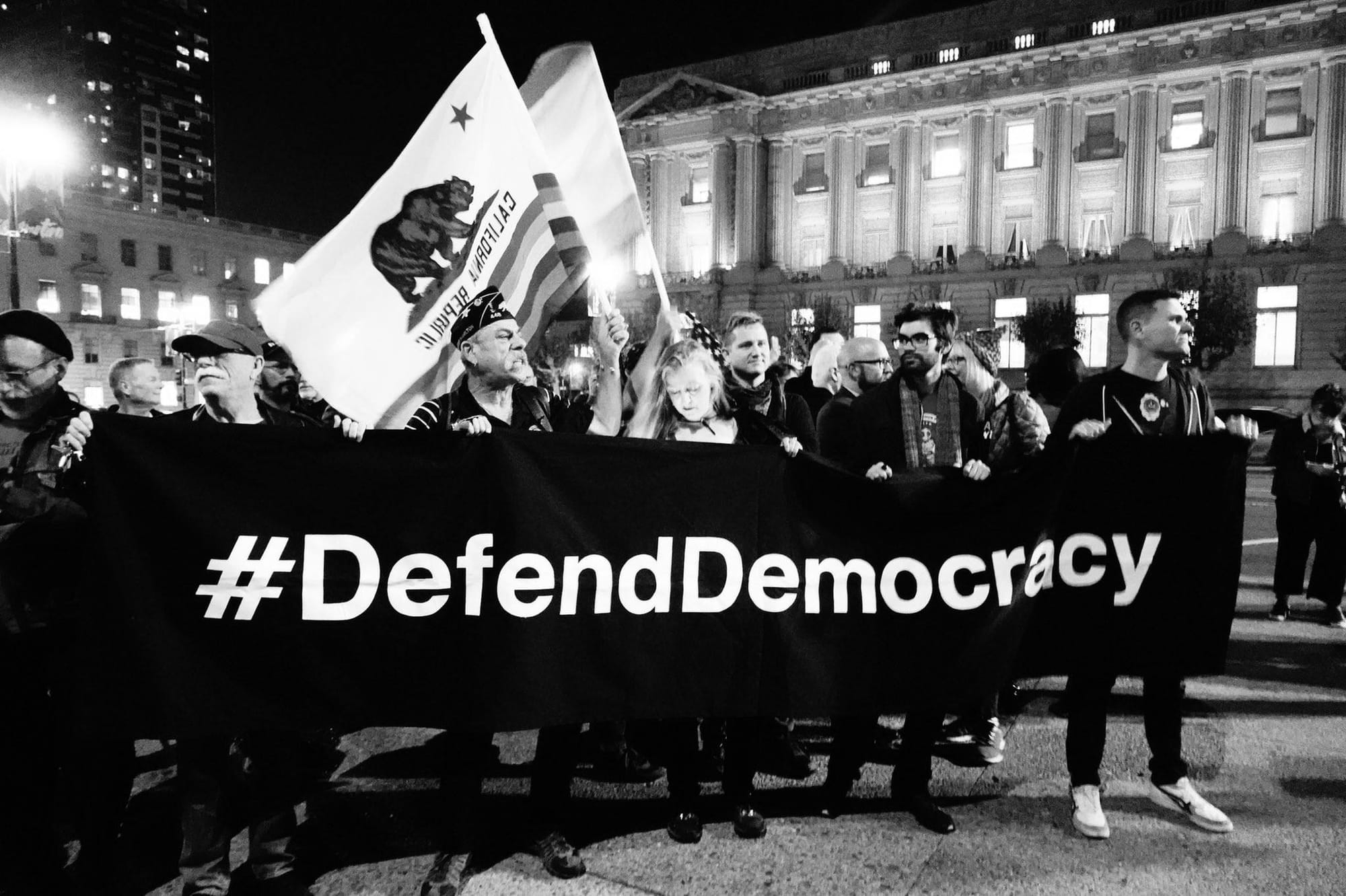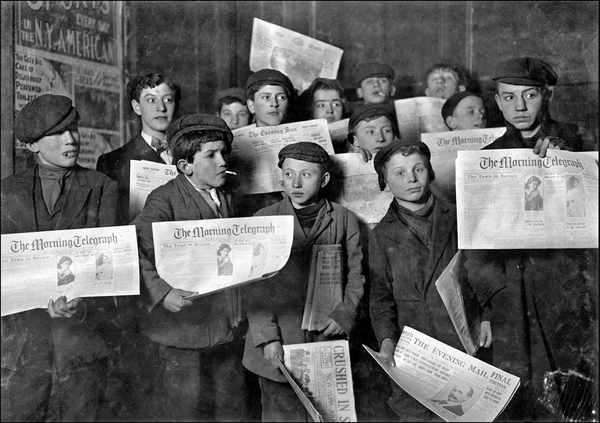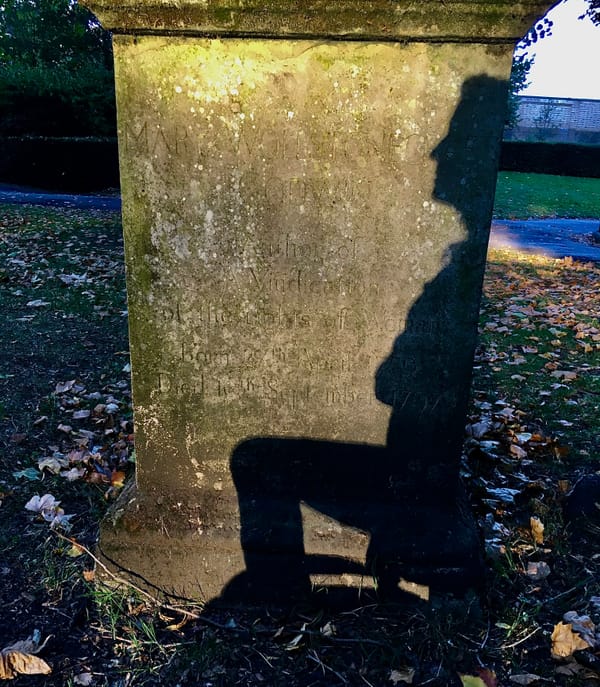An Insult Is a Confession: Notes on Journalism in the Time of Trump

There's been a lot of fuss about Trump recently calling female journalists "stupid" and "piggy" though there's nothing really new about his misogyny toward that sub-population (I am so old I remember 2016 candidate Trump saying weird things about Megyn Kelly when she asked him a tough question about his derogatory comments about yet other women, before Kelly relapsed into being far-right Trump-excusing awful Megyn Kelly). With these recent incidents, people seem to want the satisfaction of reply in the moment while ignoring the reality that one of the jobs of journalists is to preserve their access and not make the story about them. I often enjoy those comeuppance moments in movies, but they're not necessarily useful and productive in real life.
A spat would fulfill the movie emotional-satisfaction-payoff rules while doing little about the reality, and it could both put any journalist who does that in danger and undermine his or her ability to keep doing the job. As you may have noticed, largely anonymous and unprosecuted forces on the right make a whole lot of death threats to anyone who dissents, and that keeps a whole lot of Republican officials in a state of fear and obedience. A striking thing about Congresswoman Marjorie Taylor Greene's break with Trump is that she insulted and attacked the rest of us for years, "Jewish space lasers" and all, in safety, and then she stood up to Trump and immediately found herself in a kind of danger she'd never faced before. Like a lot of Republicans in the time of Trump, her dissent was swiftly followed by her resignation. But my hesitation about journalists talking back to the president isn't primarily about safety reasons. There are other ones.
A bunch of reporters were kicked out of the press pool earlier this year, as the Associated Press reported in February: "The White House said Tuesday that its officials “will determine” which news outlets can regularly cover President Donald Trump up close — a sharp break from a century of tradition in which a pool of independently chosen news organizations go where the chief executive does and hold him accountable on behalf of regular Americans." Ridiculously, AP was banned from some events for not obediently adopting the idiotically imperial name "Gulf of America" for the Gulf of Mexico.
Last month, almost the entire Pentagon press presence walked out together, refusing to cooperate with authoritarian-style restrictions on the freedom of the press. The solidarity shown in that moment was a beautiful defiant thing. Those who are in the room do their job best by staying in the room as long as they can still do their job with integrity. Their relationship with the president is not personal; their job is to report on who he really is, and provoking him to reveal himself lets them do their job even better. An insult is a confession in this context, and they might as well be field biologists documenting baboons doing baboon things.
As a print journalist rather than one who does live stuff, I've always known that I can be mild face-to-face and let whoever I'm talking to reveal themselves without pushback on anything but the facts (I don't do a lot of this kind of work these days, but I have done it in the past). In fact that very mildness often lets people relax their guard and say things they shouldn't. In the 1990s I went to interview some forest service employees for an article about how they were selling off tranches of the irreplaceable Sequoia National Forest, where some of the very few groves of ancient sequoias stood, for the benefit of a single logging company. They said a lot of indiscreet stuff because I seemed so harmless and maybe even guileless, and then freaked out and tried to discredit me to my publication, and then I nailed them to their words in the article.
For print you don't have to argue, though maybe you need to ask a follow-up question. This is often also true of just letting an interviewee say their stuff on camera for a clip that will be contextualized; it's only in the live-interview format that you need to contradict the person on camera. The person who should talk back to the president is all of us in all our arenas, and that's working just fine. As for journalists, they're doing their job: let him expose himself to them and then let the world see who he is.
Mary Bruce of ABC did that recently when she dared to ask Trump and MBS about the latter ordering the murder of Jamal Khashoggi. As the Associated Press reported it: "President Donald Trump denounced ABC News’ Mary Bruce as a “terrible reporter” Tuesday and threatened the network’s license to broadcast after she asked him three sharp questions at the White House. She asked Trump whether it was appropriate for his family to be doing business in Saudi Arabia while he was president. Before he could answer, she directed a question to the Saudi leader: “Your Royal Highness, the U.S. intelligence concluded that you orchestrated the brutal murder of a journalist. 9/11 families are furious that you are here in the Oval Office. Why should Americans trust you? And the same to you, Mr. President." After asking Bruce who she worked for, Trump called ABC “fake news” and defended his family’s business operations in Saudi Arabia."
She is as tough as it gets, telling some of the most powerful men in the world that they're guilty of murder and corruption. The insults are the result of scoring a bullseye. Catherine Lucey, the Bloomberg news journalist who was told "quiet, Piggy" while Trump shook his finger in her face had asked him a follow-up question about the Epstein files. A follow-up question to another journalist's question: "Mr. President, what did Jeffrey Epstein mean in his emails when he said you 'knew about the girls?'" The beast lashes out when he's cornered, and good on them for cornering him.
If a journalist wants to ask a follow-up question about something a president once said, that sticks to the role and the job, versus whatever personal rebuke people seem to be talking about. "Do you consider calling a journalist 'piggy' professional behavior and did her question upset you personally?" It's been annoying to see some men insisting they would chivalrously defend frail womanhood from the bully (and some women insist that should happen). Not needed, not wanted, not helpful, and usually a drama that's about the protagonist's masculinity more than anything else, which is a movie I'm tired of. Men "defending" women in situations like this are often just defending their own role and identity. There are genuinely times when a woman (or anyone else) needs to be rescued from a physical attack or have an ally in defending herself verbally (who does not need to be a man), but a journalist doing her job can survive an insult and often put that insult to use in her work.
There's a famous and great and ferocious poem by Sharon Olds about her parents' doomed alliance. Olds writes about the two young people when they first met (but read the whole poem at this link):
...she’s the wrong woman,
he’s the wrong man, you are going to do things
you cannot imagine you would ever do,
you are going to do bad things to children
but of course to wish they never married and reproduced is to wish she was never born. Rather than wish that she declares:
Do what you are going to do, and I will tell about it.
Because words have power, and bearing witness is often the most powerful form of justice.




